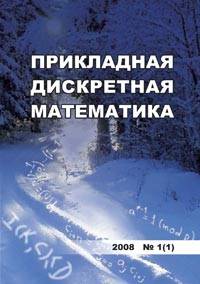Every algorithmic problem used in modern cryptography must satisfy important conditions. First of all, the problem should be easily decidable for legal users and hard for cryptanalysis. In addition, there should be an effective algorithm for generation of hard inputs. In practically used cryptosystems with open key, such inputs are randomly generated on a sufficiently large set of inputs. A problem may be hard only for a small part of the inputs (for example, only for polynomial number of words among exponential number of all binary words). So, the problem is easy for almost all inputs. This observation leads to the concept of generic complexity and computability. In the framework of this approach, the algorithmic problem is considered on some subset of “almost all” inputs. Such inputs form the so-called generic set. The concept of “almost all” can be formalized by the introduction of a natural measure on the set of inputs. The problem can be hard (moreover, algorithmically undecidable) on the whole set of inputs, but decidable (moreover, effectively decidable) for the “almost all” inputs. But cryptographic problems must remain hard in the generic case. In this paper, we study the generic complexity of the classical algorithmic problem of cryptography - the problem of extracting a root in the residue groups Z/(m), where m = pq is the product of two different prime numbers. It is still unknown whether there exists a polynomial algorithm, deciding this problem for all inputs. Moreover, the famous cryptosystem RSA is based on the assumption of its hardness. We prove that this problem is generically undecidable in polynomial time, provided there is no polynomial probabilistic algorithm for its solution in the worst case. There is a plausible hypothesis (P = BPP) that any polynomial probabilistic algorithm can be efficiently derandomized, i.e. that a polynomial deterministic algorithm can be build to solve the same problem.
Download file
Counter downloads: 256
- Title On generic complexity of the problem of finding roots in groups of residues
- Headline On generic complexity of the problem of finding roots in groups of residues
- Publesher
Tomsk State University
- Issue Prikladnaya Diskretnaya Matematika - Applied Discrete Mathematics 38
- Date:
- DOI 10.17223/20710410/38/7
Keywords
генерическая сложность, проблема извлечения корня в группах вычетов, вероятностный алгоритм, generic complexity, problem of finding roots in groups of residues, probabilistic algorithmAuthors
References
Kapovich I., Miasnikov A., Schupp P., and Shpilrain V. Generic-case complexity, decision problems in group theory and random walks // J. Algebra. 2003. V. 264. No. 2. P. 665-694.
Kapovich I., Miasnikov A., Schupp P., and Shpilrain V. Average-case complexity for the word and membership problems in group theory // Adv. Math. 2005. V. 190. P. 343-359.
Hamkins J. D. and Miasnikov A. G. The halting problem is decidable on a set of asymptotic probability one // Notre Dame J. Formal Logic. 2006. V. 47. No. 4. P.515-524.
Gilman R., Miasnikov A. G., Myasnikov A. D., and Ushakov A. Report on generic case complexity // Herald of Omsk University. 2007. Special Issue. P. 103-110.
Рыбалов А. О генерической сложности проблемы распознавания квадратичных вычетов // Прикладная дискретная математика. 2015. №2(28). С. 54-58.
Рыбалов А. О генерической сложности проблемы дискретного логарифма // Прикладная дискретная математика. 2016. №3(33). С. 93-97.
Rivest R., Shamir A., and Adleman L. A method for obtaining digital signatures and public-key cryptosystems // Commun. ACM. 1978. V. 21. Iss.2. P.120-126.
Мао В. Современная криптография: теория и практика. М.: Вильямс, 2005. 768с.
Impagliazzo R. and Wigderson A. P = BPP unless E has subexponential circuits: Derandomizing the XOR Lemma // Proc. 29th STOC. El Paso: ACM, 1997. P.220-229.
Myasnikov A. and Rybalov A. Generic complexity of undecidable problems // J. Symbolic Logic. 2008. V.73. No.2. P.656-673.
Коблиц Н. Курс теории чисел и криптографии. М.: ТВП, 2001. 254 с.

On generic complexity of the problem of finding roots in groups of residues | Prikladnaya Diskretnaya Matematika - Applied Discrete Mathematics. 2017. № 38. DOI: 10.17223/20710410/38/7
Download full-text version
Counter downloads: 464